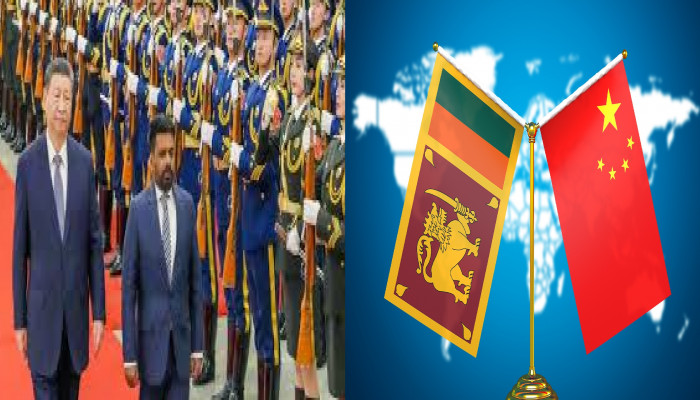Xi Jinping, Dissanayake forge stronger China-Sri Lanka alliance for new era ties
- In Reports
- 07:44 PM, Jan 15, 2025
- Myind Staff
President Xi Jinping met with his Sri Lankan counterpart, Anura Kumara Dissanayake, on Wednesday and manifested Beijing's willingness to start a new chapter in the development of China-Sri Lanka relations. The two nations also inked several agreements to strengthen their bilateral relationships.
Dissanayake, who arrived on Tuesday for a four-day visit, returned to China a month after making his first overseas trip to India since taking office in September. He received a ceremonial welcome at the Great Hall of the People, where he held talks with President Xi. According to a press release from the Sri Lankan President's Media Division in Colombo, Xi expressed China's willingness to collaborate closely with Sri Lanka to usher in a new era of development. Xi emphasised the long-standing bond between the two countries, highlighting their decades-old friendship.
Jinping reaffirmed China's dedication to maintaining its cooperation with Sri Lanka in the years ahead, according to the release. The two sides signed several Memorandums of Understanding (MoUs) to enhance cooperation in areas like the economy, social development, and industry, according to the statement. The delegation-level talks were attended by Minister of Foreign Affairs, Foreign Employment and Tourism Vijitha Herath; Minister of Transport, Highways, Ports, and Civil Aviation Bimal Rathnayake; and the Director General of the Government Information Department, H S K J Bandara. Dissanayake is also scheduled to meet Premier Li Qiang and Zhao Leji, the Chairman of the Standing Committee of the National People's Congress of China.
During the State Visit, Dissanayake is set to take part in important activities, including field visits focusing on technological and agricultural development and initiatives to reduce poverty. The visit will also feature high-level business meetings and discussions, according to a statement from the President's Office in Colombo. Sri Lanka’s Foreign Ministry stated that the visit to China will strengthen the strong ties between the two nations.
Key topics expected to be discussed during Dissanayake's meeting with Xi include allowing Chinese research vessels (viewed by India as spy ships), addressing Sri Lanka's debt obligations to China—its largest creditor—and expanding investments under the Belt and Road Initiative (BRI). Sri Lanka anticipates that the visit will lead to the digitisation of its two state television networks, ITN and Rupavahini. The Sri Lankan President's Office's media division earlier announced in a press release that the country would also look to China for help in finishing the central expressway, which has been delayed for more than ten years. The discussions would also include the Chinese industrial area surrounding the port of Hambantota in the south.
According to Qin Boyong, a senior Chinese official who travelled to Dissanayake right away after returning from Delhi in December, Chinese businesses were anxious to establish operations in Hambantota. Dissanayake, who was once strongly critical of India, chose Delhi as the destination for his first international visit. During his trip to India in December, where he met Prime Minister Narendra Modi, Dissanayake assured New Delhi that Sri Lanka would not allow its land to be used in ways that could harm India's interests, indirectly addressing concerns about China.
China strengthened its strategic ties with Sri Lanka under the leadership of pro-Beijing leaders Mahinda Rajapaksa, his brother Gotabaya Rajapaksa, and Ranil Wickramasinghe. This included acquiring the Hambantota port on a 99-year lease as part of a debt swap and developing the Colombo Port City project. As a leader of the younger generation, Dissanayake embodies the new realities of his island nation.







Comments